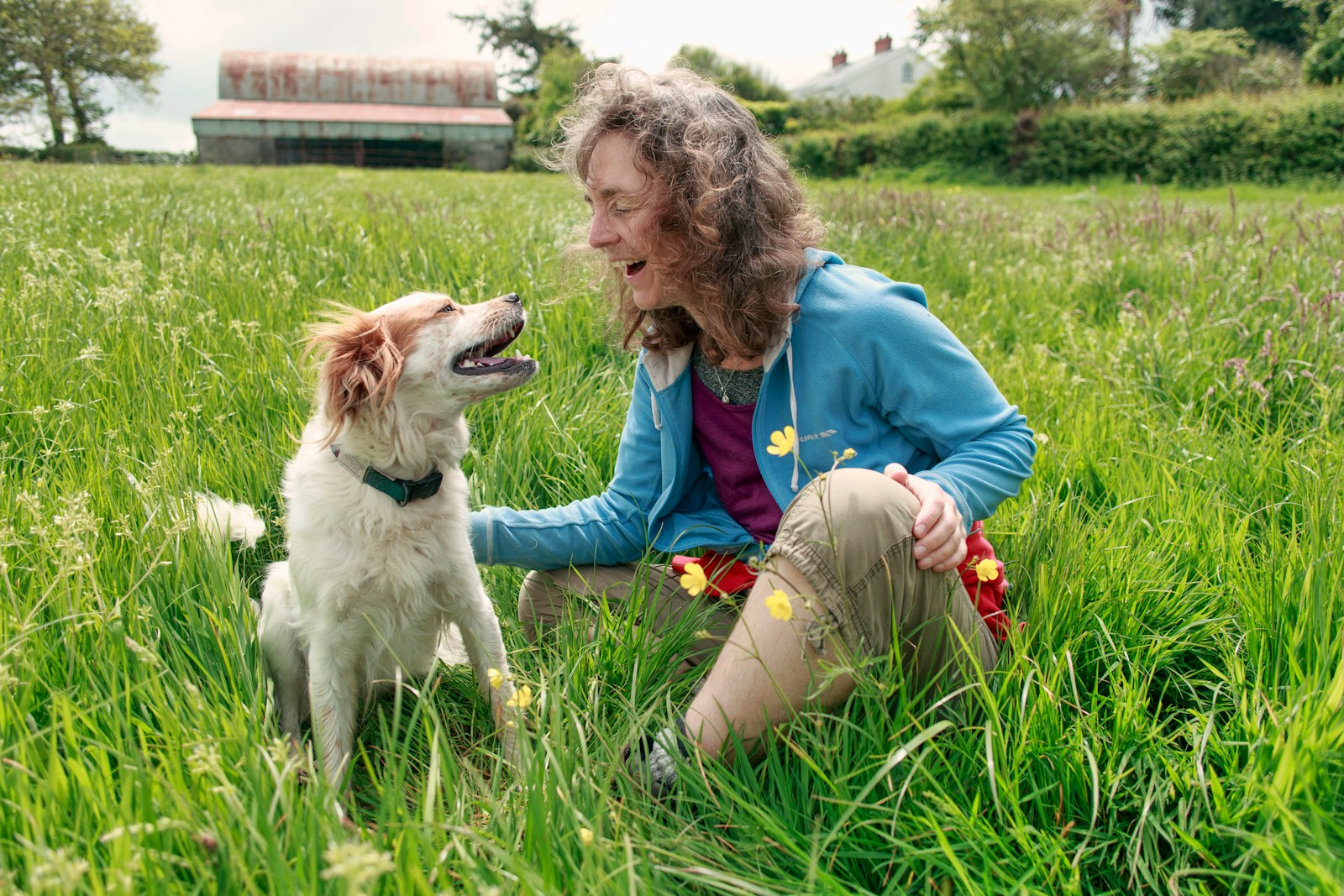To see where we currently operate, please visit our Service Area Page.
Kate’s K9 Pet Care proudly provides dog walking, cat sitting, small animal pet care, pet taxi services, “Almost Overnight” pet care, and convenient pet supply delivery. To see where we currently operate, please visit our Service Area Page .
Need a pet friendly weed killer? Keep reading!
Pets are part of our families, and their safety is a priority for every pet owner. One of the challenges is maintaining a weed-free garden without exposing our beloved animals to harmful chemicals.
In this guide, we’ll explore pet-friendly weed killers that are effective and safe for your furry friends.

The Risks of Traditional Weed Killers
Many traditional weed killers contain chemicals like glyphosate, 2,4-D, and dicamba, which can be harmful to pets.
Book services online in just a couple minutes.
These substances can cause anything from mild skin irritation to serious health issues if ingested. As responsible pet owners, it’s crucial to seek out pet safe weed killer.
The Power of Natural Weed Killer Ingredients
Nature has provided us with a plethora of ingredients that can help killing weeds without harming our pets. Some of these include:
Vinegar
Acetic acid in vinegar will kill weeds, causing them to wither and die.
Salt
Sodium chloride disrupts the internal water balance of weed cells, leading to their demise.
Soap
As an adjuvant, soap enhances the effectiveness of other ingredients by helping them stick to weeds.
When using these natural solutions, be mindful that high concentrations can affect soil health. Application should be done with precision, targeting weeds directly.
DIY Pet Safe Weed Killer
For those who love a good do-it-yourself project, creating your own natural weed killers and killer might be the solution. Here’s a simple recipe:
Ingredients
-
1 gallon of white vinegar
-
1 cup of salt
-
1 tablespoon of liquid dish soap
Instructions
-
Mix the vinegar and salt in a bucket until the salt dissolves completely.
-
Add the dish soap and stir gently to combine without creating too many suds.
-
Pour the mixture into a spray bottle for easy application.
Application Tips
-
Spray directly onto the leaves of weeds.
-
Don’t use during peak sun hours as it could cause the solution to evaporate too quickly.
-
Be cautious around plants you want to keep, as this mixture can harm them as well.

Commercial Pet Friendly Weed Killers
For those who prefer a ready-made solution, there are commercial products on the market that boast pet-friendly formulations.
When shopping for such products, look for labels that mention being “safe for pets” and review the list of active ingredients.
Precautions and Best Practices
Even with pet-friendly products, safety precautions should still be taken.
-
Read Labels: Always read and follow the instructions on the product label.
-
Spot Treatment: Treat weeds in small patches to minimize the risk and control the spread of the product.
-
Reentry Time: Allow the product to dry fully before allowing pets back into the treated area.
-
Store Safely: Keep any weed-killing products stored securely and out of reach from pets.
Integrated Pest Management (IPM)
Incorporating IPM strategies into your gardening can reduce the need for chemical weed killers. IPM might include:
-
Manual weeding
-
Mulching to prevent weed growth
-
Planting ground covers that outcompete weeds
-
Using barriers such as landscape fabric
By employing a multi-pronged approach, you can effectively manage weeds while prioritizing your pets’ safety.

The Best Pet-Friendly Weed Killers: Safe Solutions for Your Furry Friends
Gardens are serene refuges for both humans and pets alike, offering vibrant green spaces to enjoy. Yet, the battle against pesky weeds, is an ongoing concern for many gardeners who strive to maintain immaculate landscapes.
The use of weed killers, however, raises significant worries for pet owners about the potential harm to their beloved animals.
Next, we explore the best pet-friendly weed killers that bring peace of mind to pet parents. These products ensure that your garden stays pristine without compromising the health and safety of your furry family members.
Understanding the Risks of Traditional Weed Killers to Pets
Before diving into the safer alternatives, it’s essential to recognize why many conventional weed killers pose a risk to pets.
Chemicals such as Glyphosate, 2,4-Dichlorophenoxyacetic acid (2,4-D), and other herbicides have been associated with various health issues in animals ranging from skin irritation to more severe conditions.
Pets, particularly dogs, are known for their curiosity and habit of nibbling on grass or plants, which can lead to ingestion of these toxic chemicals. Additionally, chemicals can linger on their fur or paws and later be ingested during grooming.

Top Pet-Friendly Weed Killers: A Safer Approach
Fear not, not all weed killers are harmful to pets, as the market offers several safe, effective weed control solutions. Here’s a rundown of some of the best options available:
1. Natural Vinegar-Based Solutions
Vinegar-based weed killers are popular because vinegar’s acetic acid burns down weeds without residual toxicity. Eco-friendly and easy to prepare at home, a concoction of vinegar, salt, and a drop of dish soap can keep your garden weed-free and pet-safe.
2. Corn Gluten Meal Herbicide
Corn gluten meal is a natural byproduct of milling corn and serves as an organic pre-emergent herbicide. It works by preventing weed seeds from germinating, and since it’s entirely natural, it’s safe for pets when used as directed.
3. Pulverize Weed & Grass Killer
This is a commercial brand that uses a plant-based formula to control weeds. Free from harsh chemicals, it’s gentle on the environment and your pets. Always follow application instructions for the best results.
4. Dr. Earth Final Stop Weed & Grass Herbicide
Dr. Earth’s Final Stop is known for being pet-safe right after application. It contains essential oils and organic ingredients that are effective against weeds while being kind to animals.
5. Burnout Fast Acting Weed and Grass Killer
As the name suggests, Burnout works quickly to eliminate unwanted vegetation. It’s made with natural ingredients and approved for organic gardening, making it a safe choice for households with pets.

Tips for Using Pet Friendly Weed Killer
When using any weed killer, even those labeled as pet-friendly, consider the following tips for safe application:
-
Read the Labels: Always follow the product instructions for the safest application.
-
Spot Treatment: Apply the weed killer directly to the weeds to minimize exposure.
-
Keep Pets Indoors: During application, it’s best to keep pets inside until the product has dried or as indicated by the label.
-
Wash Paws: After letting your pets outside, wash their paws to remove any potential residue.
The health and safety of our pets do not have to be compromised for a well-maintained garden. By choosing the best pe friendly weed killer and following safe application practices, you can enjoy a beautiful garden and happy, healthy pets.
Remember, a few weeds are a small price to pay for our furry companions’ well-being, but with these solutions, you won’t even have to make that trade-off.

Signs of Weed Killer Poisoning in Pets
Understanding the signs of weed killer poisoning in pets is crucial for pet owners who strive to keep their furry friends safe. Many commercial weed killers contain chemicals that are hazardous to animals, and exposure can lead to serious health problems or even be fatal if not addressed promptly.
Immediate veterinary attention is essential if you suspect your pet has been poisoned. Here, we outline some key indicators that your pet may have come into contact with a toxic weed killer.
Gastrointestinal Symptoms
-
Vomiting: Pets might vomit soon after ingesting a toxic substance.
-
Diarrhea: Look out for loose, watery stool which may also contain blood.
Neurological Symptoms
-
Seizures: Sudden seizures could be a sign of poisoning.
-
Ataxia (Lack of coordination): Difficulty standing or walking straight.
-
Lethargy: Unusual tiredness and lack of energy.
Respiratory Symptoms
-
Difficulty Breathing: Pets may struggle to breathe or pant heavily.
Oral Symptoms
-
Excessive Drooling: More drool than usual could be a warning sign.
-
Ulcers in the Mouth: Chemical burns inside the mouth may be visible.
Other Symptoms
-
Depression: An uncharacteristically low mood or disinterest in normal activities.
-
Loss of Appetite: Refusal to eat or drink.
-
Increased Thirst and Urination: If your pet is ingesting more water than usual.
-
Skin Irritations: Rashes or burns on the skin.
Immediate Actions to Take
-
Remove your pet from the area to prevent further exposure.
-
Do not induce vomiting unless advised by a veterinarian.
-
Contact your veterinarian or local emergency animal hospital immediately. If possible, bring the weed killer container to the vet for quick identification of the toxin.
Prevention Tips
-
Always store weed killers securely out of reach of pets.
-
When treating your lawn or garden, keep pets indoors until the product is dry and the area is safe.
-
Use pet-friendly weed control options where available.

Conclusion
It’s entirely possible to maintain a beautiful, weed-free outdoor space without compromising the well-being of your pets. Whether you choose a homemade concoction, a commercial product, or a comprehensive strategy like IPM, you’re taking an important step in protecting your furry family members.
Remember, consistency in garden maintenance reduces the necessity for drastic measures. A little attention can go a long way in keeping both your garden and your pets happy and thriving.
Looking for more pet health tips and advice? Chek to our blog at K9 Pet Care Services for regular updates and tips on creating a thriving, pet-safe home environment.







